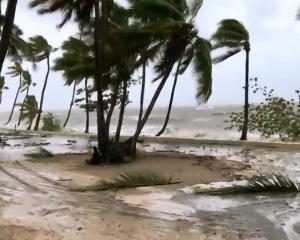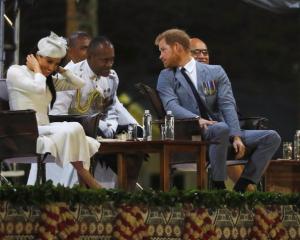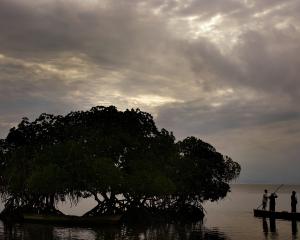Despite protestations to the contrary, there seems to have been a precipitous about-face in the attitude of the New Zealand Government towards Fiji.
Late last week during a below-the-radar visit to the Pacific nation, Foreign Affairs Minister Murray McCully met his counterpart in Frank Bainimarama's military regime, Ratu Inoke Kubuabola.
During the encounter both countries agreed to improve diplomatic relations with appointments to Suva and Wellington respectively of additional counsellor positions, and agreements, in principle, to appoint deputy heads of mission in both capitals.
Whether the lodging of deputy heads of mission in each capital, rather than heads of mission, would lessen the likelihood of the series of expulsions initiated at the behest of the military regime and which have dogged diplomatic engagement between both Australia and New Zealand, and Fiji, over the last year or so, remains unclear, for Mr McCully was adamant that the bigger picture of relations between the two countries remained as it had been.
"None of this signals a change to New Zealand's substantive policy with regard to the regime in Fiji, nor does it signal any change in the sanctions regime currently in place," the Foreign Minister said.
"But it does signal a determination to improve the relationship, and in particular to be able to agree and disagree about some things."
Primary among those matters likely to remain disagreeable to Mr Bainimarama, when aired by New Zealand or Australian diplomats, is the illegitimate status of his regime and the sanctionable failure yet to make significant progress towards holding free and fair elections; or to lift anti-democratic measures against the media in the island nation.
And neither, by all indications, is the New Zealand Government about to let bygones be bygones and fly the white flag of capitulation in the Fijian capital.
So what changed? What changed was the prospective visit to the region of the United States Secretary of State, Hillary Clinton.
Mr McCully had admitted that the situation in Fiji was likely to be discussed with Mrs Clinton, but denied the proximity of the now postponed visit and the rapprochement with Fiji was anything other than coincidence.
New Zealand and Australia are regarded warmly in Washington for their influence in the Pacific, a sphere of interest and friendship that the US would be loath to let slip.
The fear of seeing a chain of tiny Pacific nations succumb to the expansive charms and pecuniary largesse of another superpower is likely to be pressing in both the Pentagon and the White House.
There is certainly evidence that Fiji has been courted through a persistent and generous aid offensive from Beijing, and it is perhaps this potential alliance - and his awareness of the likely response to it by the US, New Zealand and Australia - that allows Mr Bainimarama to strut and procrastinate in the face of pressure for reform.
In the year following the self-appointed prime minister's 2006 coup, which ousted the legitimate Fijian government, Chinese pledges to the country increased seven-fold from $US23 million in 2006 to $US161 million in 2007.
Much of this has gone towards infrastructure projects and, unlike aid from Western nations, does not appear to date to have been tied to moves back towards democracy.
China's relationship with other "outlaw" regimes, such as Sudan and Myanmar, would suggest that this is unlikely to change.
Mr Bainimarama has cultivated the relationship with the north and while the benefits might appears to tilt heavily in Fiji's favour, there will have been much Western diplomatic "noise" about China's creeping influence in the Pacific as a result of it.
For all its errant ways, Fiji remains an important force in the Pacific, with the potential to influence smaller nations.
It is likely that behind the scenes diplomats have been determinedly canvassing approaches with their political masters on how to loosen the stalemate paralysing the countries' relationship.
In all the circumstances, it would be surprising if the imminent arrival of Mrs Clinton had not persuaded the Minister of Foreign Affairs and his policy specialists to try a little harder at breaching the impasse.











